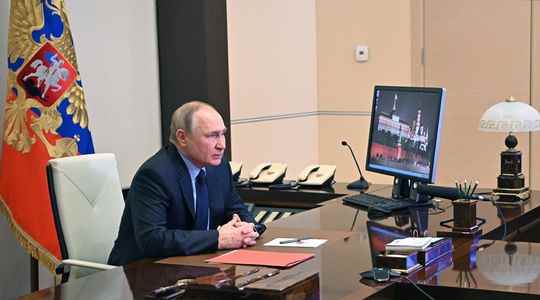To fear a war is not to fear a nuclear war. In the first case, we anticipate the certainty of human losses and suffering, social and material destruction, territorial modifications and changes of sovereignty, as is often unfortunately the case. In the second case, we dive into the unknown, or rather into the likelihood of the apocalypse. However, if Poutin’s semantic escalation is anxiety-provoking, let’s be right.
First, agitating a possible use of the bomb is frankly nothing new. In 1956, during the Suez crisis, the Kremlin threatened France, the United Kingdom and Israel with nuclear reprisals if the Franco-Israeli-British coalition did not withdraw from the canal. Still in the Middle East, in 1973, Israeli Prime Minister Golda Meir – in the face of Richard Nixon’s inertia in the face of the perilous Syrian-Egyptian offensive – had warned in substance that if Israel disappeared, the whole region would also disappear. Did she bluff? It doesn’t really matter. In 1998, during his official trip to Beijing, Boris Yeltsin, Putin’s non-belligerent predecessor, had reminded the United States in the middle of a press conference that Russia still possessed the atomic bomb… It should be noted that in each of these cases, the one making the threat was objectively in a state of weakness. In this case, from the first days of his offensive, Putin could only observe serious difficulties if not major setbacks before falling back, and two of his three sorties came after serious setbacks in the north of the Ukraine and around kyiv…
Secondly, few political regimes have maintained an apocalyptic dimension. Over a century, we can count three: the Third Reich at its end in 1944-45, the interim Rwandan Hutu Power government in 1994 and the genocide of the Tutsi, and the Islamic State (Daesh) between 2013 and 2017. Putin has certainly demonstrated a real ideological adventurism in Ukraine, as brutal but more risky than usual, but nothing indicates that it is a drift of an apocalyptic nature. One thing is to try to crunch all or part of Ukraine via old tanks, demotivated infantrymen and scenes of terror, another would be to overturn the world geostrategic table, for the first time since 1945 and for the probable benefit of a more powerful player in the event of a very high confrontation, NATO.
Between the titans, deterrence prevails (still)
Finally, would this dantesque game be worth the candle? After all, the Ukrainians, who have already withstood an onslaught of bullets, shells and conventional bombs, would not necessarily give in to the unconventional, and perhaps they would be even more determined to resist. , driven by revenge and/or the energy of despair. Moreover, the Chinese partner would not accept the use of the bomb; Beijing, a very conservative regime of a world system that favors it and thanks to which it intends to become the first world power, defends not only the respect of the sacrosanct state sovereignty (undermined by the “friend” Putin) and the non-use of military force in the settlement of conflicts (idem!), but also the 1968 non-proliferation treaty. Japan, and enemy and nuclearized states such as India and Pakistan could in turn fall into the temptation to follow the Russian example… For what benefit, since deterrence prevails between these titans?
So, harmless or even derisory, the threats of Putin? Certainly not; to wave the bomb is (to try to) kill two birds with one stone: on the one hand to terrorize the population and/or the enemy army, on the other hand to express one’s high degree of determination and/or exasperation . It is therefore serious. At the same time, to evoke the bomb is to conventionalize it in the rhetorical and diplomatic device; rather than contenting ourselves with a tweet, an official press release, a recall of an ambassador or a military parade, we are waving the supreme specter.
The great diplomat Talleyrand said of a good cognac that before drinking it, you should talk about it. No doubt the same is true for the fatal hemlock, which even the very brutal Putin does not seem ready to impose on his enemy at the risk of his own life…
